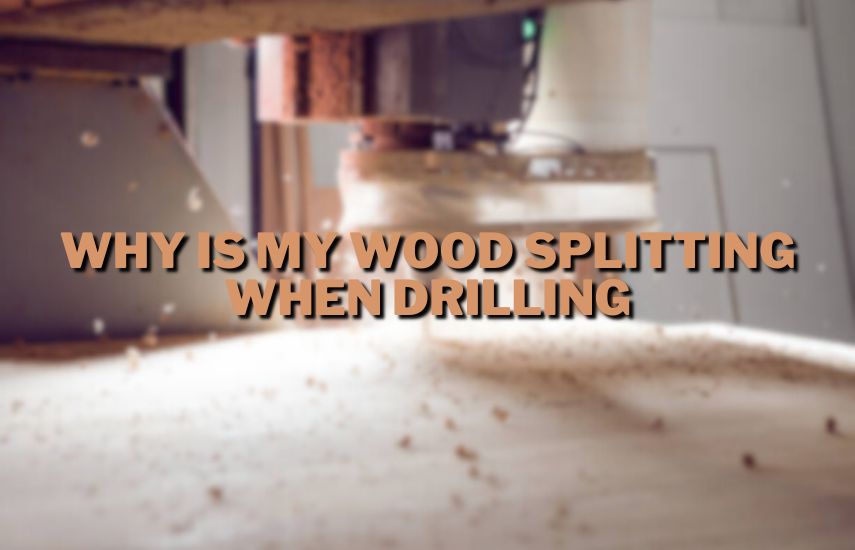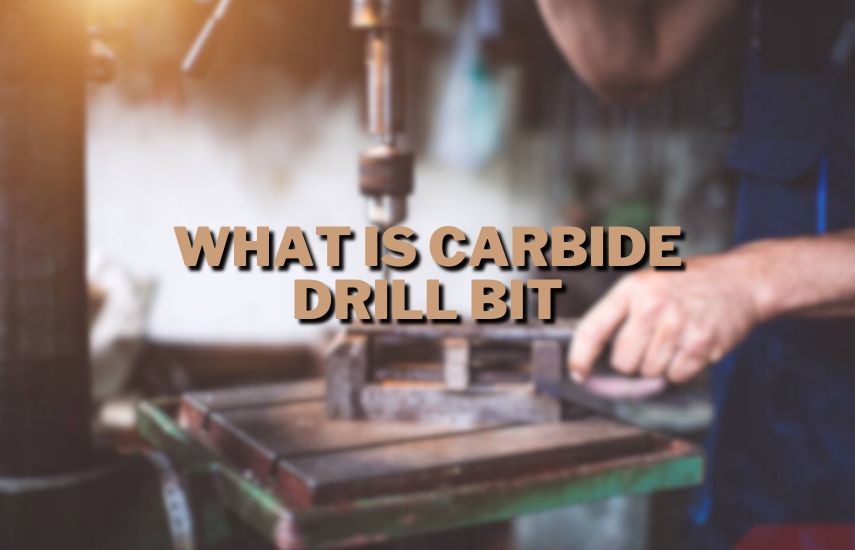Have you ever found yourself standing in the hardware store, staring at the overwhelming selection of drill bits, wondering if they are all the same?
Or maybe you tried to use a drill bit for a job but couldn’t because it didn’t fit your drill. You are not the only one if that’s the case.
Are Drill Bits Universal? No, drill bits don’t work with everything. Different drill bits, such as wood, metal, or masonry, are designed for specific materials and applications.
Many people need clarification about whether drill bits are universal, and it’s a valid question. In this blog, we’ll explore the answer to this question and help you understand which drill bits are versatile and which are not.
Types of Drill Bits

Drill bits are essential tools for any DIY enthusiast or professional contractor. They come in different shapes, sizes, and materials to accommodate various drilling needs.
We will explore the different types of drill bits and their uses to help you choose the right one for your drilling projects.
Twist Drill Bits
Twist drill bits are the most common type of drill bit. They are suitable for drilling through various materials, including metal, wood, plastic, and composites.
Twist drill bits have a cylindrical shape with spiral flutes that help to remove debris from the hole as you drill.
They come in different sizes, with the smaller sizes being suitable for drilling smaller holes and the larger sizes for drilling larger holes.
Masonry Drill Bits
Masonry drill bits are designed for drilling through hard and abrasive materials such as concrete, brick, and stone.
They have a carbide tip that helps to penetrate through the tough surface without getting damaged.
Masonry drill bits come in various sizes and are suitable for drilling holes for anchors, screws, and dowels.
Spade Drill Bits
Spade drill bits are designed for drilling large and flat-bottomed holes in wood. They have a flat blade with a sharp point and are suitable for drilling holes in electrical boxes and pipes.
Spade drill bits come in various sizes, and you can also get adjustable spade bits that allow you to drill holes of different sizes.
Forstner Drill Bits
Forstner drill bits are designed for drilling flat-bottomed holes with smooth sides in wood. They are suitable for drilling holes for cabinet hinges, dowels, and decorative inlays.
Forstner drill bits have a cylindrical shape with a central point and multiple cutting edges that help to create precise holes.
They come in various sizes, and you can also get adjustable Forstner bits that allow you to drill holes of different sizes.
Step-drill bits
Step drill bits are designed for drilling holes of different sizes in metal, wood, plastic, and composites.
They have a cone-shaped design with multiple stepped levels that allow you to drill holes of various sizes with a single bit.
Step drill bits are suitable for drilling holes for electrical conduits, pipes, and fittings.
Hole Saws
Hole saws are designed for drilling larger holes in wood, metal, plastic, and composites. They are cylindrical with a serrated edge that cuts through the material as you drill.
Hole saws are suitable for drilling holes in pipes, electrical boxes, and recessed lighting.
They come in various sizes, and you can also get adjustable hole saws that allow you to drill holes of different sizes.
Drill bits are not universal; each type is designed for specific drilling needs.
By understanding the different types of drill bits and their uses, you can choose the right one for your drilling projects and achieve the desired results.
Always use the appropriate drill bit for your drilling material to ensure safety and accuracy.
Drill Bit Materials

When it comes to drill bits, one of the most important things to consider is the material they are made from.
The right material can make all the difference in performance, durability, and versatility. We’ll examine some of the most common materials used for drill bits and what makes them unique.
High-speed steel, or HSS, is one of the most popular materials for drill bits. This type of steel is known for its durability and ability to retain its sharpness even under high heat and friction.
HSS drill bits are typically made from a combination of carbon steel and other elements like tungsten, chromium, or vanadium, which help to increase their strength and wear resistance.
HSS drill bits are suitable for a wide range of materials, including wood, plastic, and metal, and they are a great all-around option for most drilling needs.
Cobalt steel is a type of high-speed steel that contains a higher percentage of cobalt than traditional HSS.
This added cobalt makes the drill bits more resistant to heat and wear, making them ideal for drilling through harder materials like stainless steel or titanium.
Cobalt steel bits are also known for their longevity and can be re-sharpened multiple times, making them a good investment for those who use their drills frequently.
Carbide drill bits are made from a combination of tungsten carbide and cobalt.
This is incredibly hard and durable, making it ideal for drilling through tough materials like masonry, ceramics, and hardened steel.
Carbide bits can also maintain their sharpness even at high temperatures and can be used at higher drilling speeds than other bits.
They are typically more expensive than HSS or cobalt steel bits and may be less versatile.
Diamond drill bits are the hardest and most durable type of drill bit. These bits are typically used for drilling through hard materials like glass, tile, and stone.
Diamond bits can create precise holes without shattering or cracking the material, making them a popular choice for those who need to create holes in delicate or brittle materials.
Diamond bits are also the most expensive and may only be necessary for some drilling applications.
Drill Bit Shank Types

When it comes to drilling, it’s essential to understand the different types of drill bits and their shank types. The shank is the drill bit part that fits into the drill’s chuck.
The shank type can significantly impact the drill bit’s performance, so it’s important to choose the right one for your specific task.
We will discuss the four main types of drill bit shanks: straight shank, hex shank, SDS shank, and taper shank.
Straight shank drill bits are the most common type of shank used in most drills. They have a cylindrical shape with no flat surfaces, which makes them compatible with most drill chucks.
Straight shank drill bits are ideal for drilling into soft materials such as wood and plastic. They are available in various sizes and lengths and can be used with hand and power drills.
Hex shank drill bits have six flat surfaces designed to fit into a hexagonal chuck. Hex shank drill bits are commonly used in impact drivers and cordless drills, as they provide a better grip and more torque than straight shank drill bits.
They are ideal for drilling into hard materials such as metal and masonry. The hexagonal shape also helps to prevent slipping, which can cause damage to the drill bit and work surface.
SDS shank drill bits are designed to fit into SDS chucks, which are commonly found on rotary hammers.
SDS shank drill bits have two open grooves on the shank that allow them to slide into the SDS chuck, which provides a secure grip and prevents slipping.
SDS shank drill bits are ideal for drilling into concrete and other hard materials. They are available in various sizes and lengths and are often used in construction and demolition work.
Taper shank drill bits have a conical shape that tapers towards the end of the shank. They are designed to fit into taper shank chucks commonly found on larger drills and milling machines.
Taper shank drill bits are ideal for drilling large holes and are widely used in metalworking and woodworking.
The conical shape of the shank provides a secure grip and prevents slipping, which is essential when drilling large holes.
Taper shank drill bits are available in various sizes and lengths and can be used with hand and power drills.
Conclusion
After exploring the various factors determining the compatibility of drill bits with different materials and applications, it is clear that there is no truly universal drill bit.
While some bits may have a wider range of applications than others, each type of bit has unique strengths and weaknesses that make it more suitable for certain tasks than others.
Selecting the right drill bit for each application is crucial for achieving the best results and ensuring the longevity of your tools.
If you use the wrong bit, not only will your work not be as good and your materials may get damaged, but your drill may also wear out faster, which will cost you more money in repairs later on.
We will examine the importance of selecting the right drill bit for each application and provide some tips for ensuring that you choose the best bit for the job at hand.
FAQs
Do all drill bits fit into any drill?
Not every drill bit will work with every machine. For proper use, different drills need bits with different shanks and sizes.
What is a universal-fit drill bit?
Universal-fit drill bits aim to work with various drills by featuring adaptable shank designs or compatibility with multiple chuck sizes.
Are masonry drill bits universal?
Masonry drill bits don’t always work with all drills. They’re made for working with brickwork, but not all drills can work with them.









